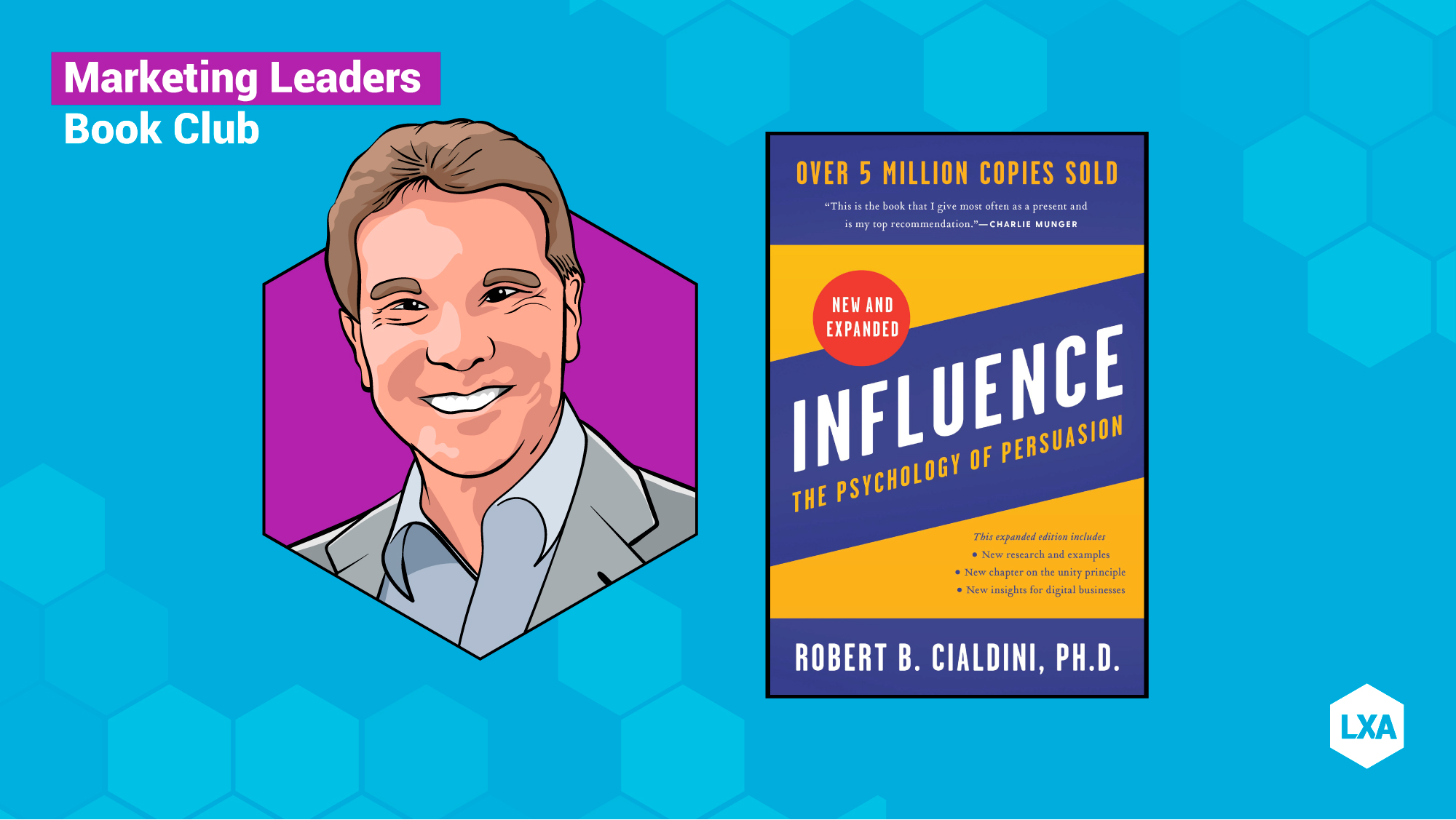
We're bringing you the best insights written in the world of marketing today, thanks to our sponsors at mParticle.
Dr. Robert Cialdini has been researching influence for a number of years, leading to him gaining the nickname of the "Godfather of Influence". Which is pretty damn cool. Makes him sound like one of the X-Men.

He began this exploration when he found he was constantly buying more cookies than he could eat from the Girl Guides. Wondering why he was constantly being influenced to buy stuff he didn't want or need piqued his curiosity and drove him to find out more.
Then, he spent three years undercover, applying for and training at car dealerships, fund-raising organisations, and telemarketing firms, to learn from the shop floor. His observation of real-life situations of persuasion led to the creation of this book.
Why Influence: The Psychology of Persuasion is Vital for Any Modern Marketer
"I have extracted six universal principles of influence--those that are so powerful that they generate desirable change in the widest range of circumstances."
- Dr. Cialdini
So, what are these six powerful principles?
- Reciprocation. This is the phenomenon where individuals will be more likely to comply with requests from a party who has provided something first.
For example, according to the American Disabled Veterans organisation, mailing out a simple appeal for donations produces an 18% success rate; but, enclosing a small gift--personalised address labels--boosts the success rate to 35% - Commitment and Consistency. Individuals are more likely to be convinced if they see the direction as consistent with a previous commitment.
- Authority. People can be swayed more easily by the instructions of someone who has authority or expertise.
- Social Validation. People are more willing to take a recommended action if they see evidence that many others, especially similar others, are taking it.
- Scarcity. Consumers, and individuals as a whole, find objects and opportunities more attractive if they are rare or becoming rare.
- Liking. People prefer to say yes to those they know and like.
About the Author
Dr Cialdini is a New York Times, Wall Street Journal, and USA Today's Best-Selling author.
He also has earned a worldwide reputation as a keynote speaker, due to his ability to translate science into practical actions.
After receiving his PhD from the University of North Carolina, and post-doctoral training from Columbia University, he became Regents’ Professor Emeritus of Psychology and Marketing at Arizona State University.
He holds honorary doctoral degrees (Doctor Honoris Causa) from Georgetown University, the University of Social Sciences and Humanities in Wroclaw, Poland and the University of Basil in Switzerland. He has held Visiting Scholar appointments at Ohio State University, the University of California, the Annenberg School of Communications, and the Graduate School of Business of Stanford University.
Dr. Cialdini was elected to the American Academy of Arts & Sciences in 2018 and the National Academy of Sciences in 2019.
Top Takeaways
The Psychology of Persuasion is a fascinating book that delves into the science of why people say yes to certain requests. The author, Robert Cialdini, explores six principles of persuasion that have been proven to be effective in influencing others.
The six principles are reciprocity, commitment and consistency, social proof, authority, liking, and scarcity. Each principle is based on psychological research and has been shown to increase the likelihood that someone will comply with a request.
For example, the principle of reciprocity states that people are more likely to say yes to a request if they have received something from the person making the request first. This is why businesses often offer free samples - they know that people are more likely to buy their product if they've tried it first.
If you're interested in learning more about how to influence others, I highly recommend reading this book. It's packed with useful information and is written in an engaging and accessible style
Cialdini ends yet another compelling book with a claim that we humans have created a crazy complicated world which is becoming unfathomable -- let us call it the Information Age instead of the Knowledge Age. The underlying message of the book is that humans are not always using all available information in making decisions - sometimes they are using shortcuts.
Link to purchase page
PurchaseInfluence: The Psychology of Persuasion on Amazon and Audible
Other Books You May Be Interested In
- The 22 Immutable Laws of Marketing - Al Ries and Jack Trout
- Purple Cow - Seth Godin
- Superfans - Pat Flynn
- Building a Storybrand - Donald Miller
We're bringing you the best insights written in the world of marketing today, thanks to our sponsors at mParticle 👇

Stay tuned for more! 📖📚
